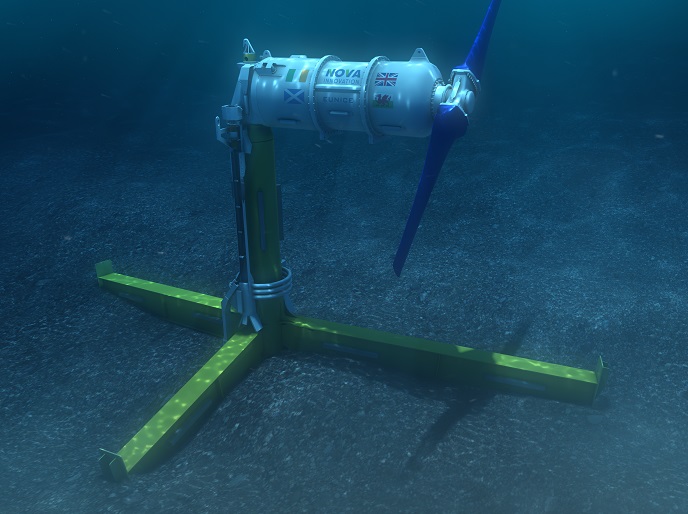Pioneering tidal array expands
The EU-funded EnFAIT project has helped British tidal energy company Nova Innovation to double the size of its Shetland Tidal Array. A world first, the achievement follows the initial installation of three underwater tidal turbines in 2016 and a fourth in 2020. Now, with the installation of the fifth and sixth turbines, the array boasts the largest number of turbines in the world. The first three Nova M-100 100 kW turbines named Ailsa, Betty and Charlotte were the first offshore tidal array in the world to deliver electricity to the grid and have been powering homes and businesses in Shetland ever since. Eunice, the fourth turbine, was the first of the three turbines planned under the EnFAIT project for the purpose of doubling the size of the Shetland Tidal Array. CEO of EnFAIT project coordinator Nova Innovation Simon Forest states in a news item posted on the project website: “The doubling of the Shetland Tidal Array is further evidence of the scalability and commercial readiness of tidal energy. We have been powering homes and businesses in Shetland since 2016 so our technology is proven in Shetland, ready for the world. The EnFAIT project, funded by EU Horizon 2020, has been instrumental in driving down the cost of tidal energy, demonstrating extensive reliability and proving the bankability of the tidal sector.”
Numbers five and six
The two new turbines, named Grace and Hali Hope, are connected to a subsea hub that sends power to shore via a single export cable. This innovation cuts costs on subsea cables, making tidal power even cheaper. “We are happy that the EU Horizon 2020 programme could support the development of tidal energy via the ENFAIT project and we hope that the good results of this project will attract further investors,” observes Matthijs Soede, Senior Policy Officer at the European Commission. “Learnings from the continued operation and maintenance of all turbines, from Ailsa to Hali Hope, are extremely important and are a milestone for the whole ocean energy sector”. According to Graham Smith, Principal Portfolio Manager at EnFAIT project partner Offshore Renewable Energy Catapult, United Kingdom, “EnFAIT represents a major step change in the development of tidal energy across Europe, and clearly demonstrates the strong supply chain growth opportunities for companies looking to operate in the sector. Demonstration projects like EnFAIT are key to realising the full potential of tidal stream energy, as outlined in our latest ‘Cost Reduction Pathway of Tidal Stream Energy in the UK and France’ report which highlighted that tidal stream energy could plummet below £80 per MWh by 2035 if current opportunity is realised.” The EnFAIT (Enabling Future Arrays in Tidal) project will run until June 2023. For more information, please see: EnFAIT project website
Keywords
EnFAIT, Shetland, tidal array, turbine, tidal energy



